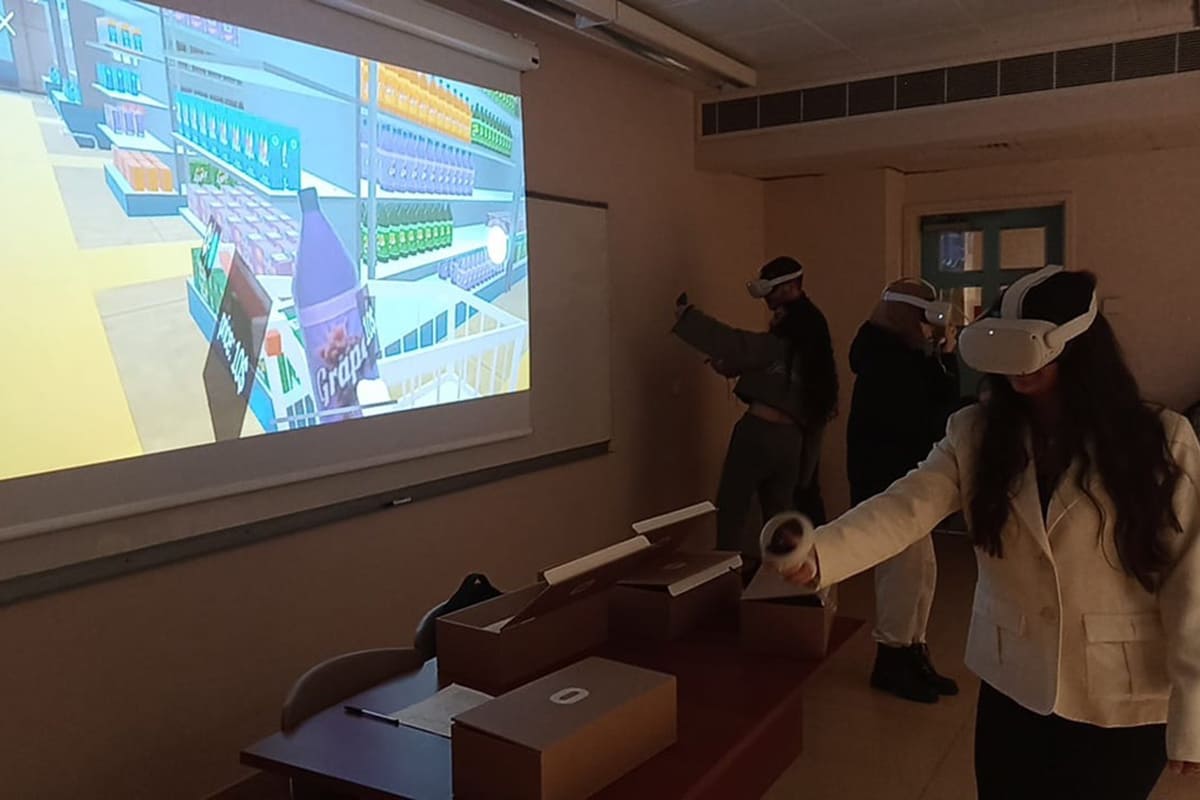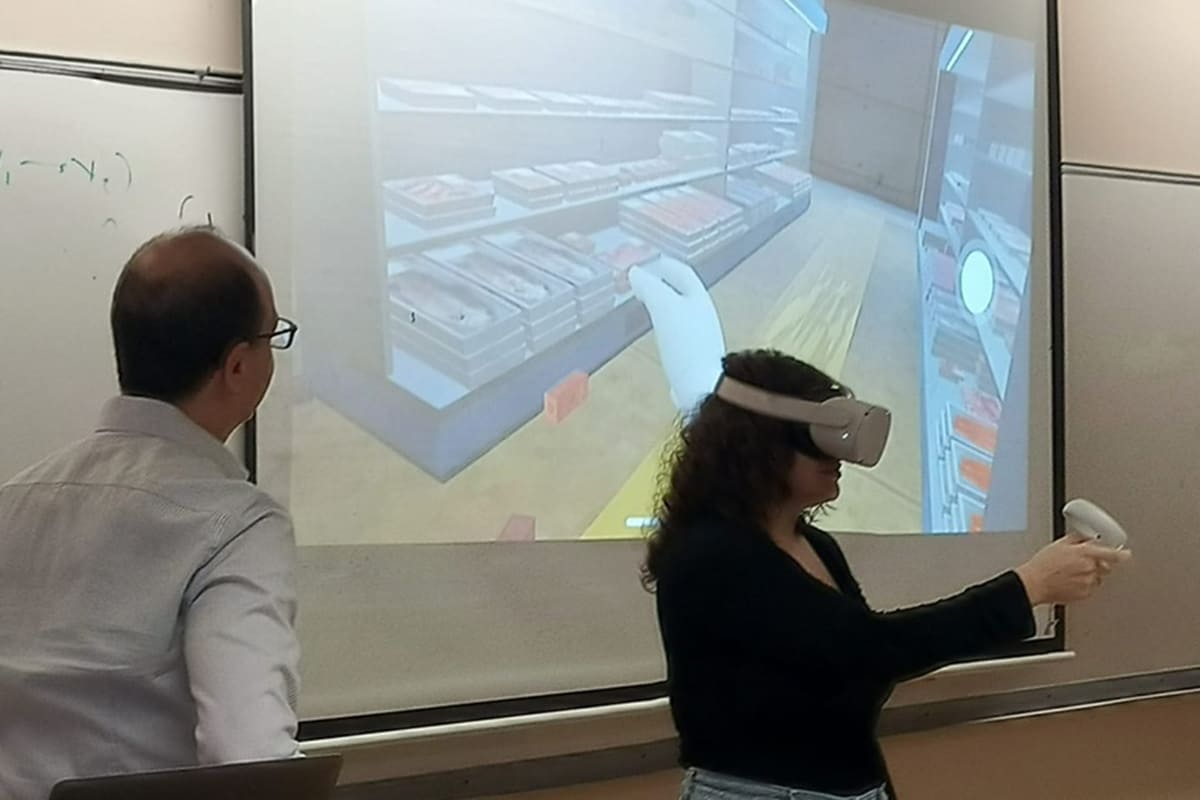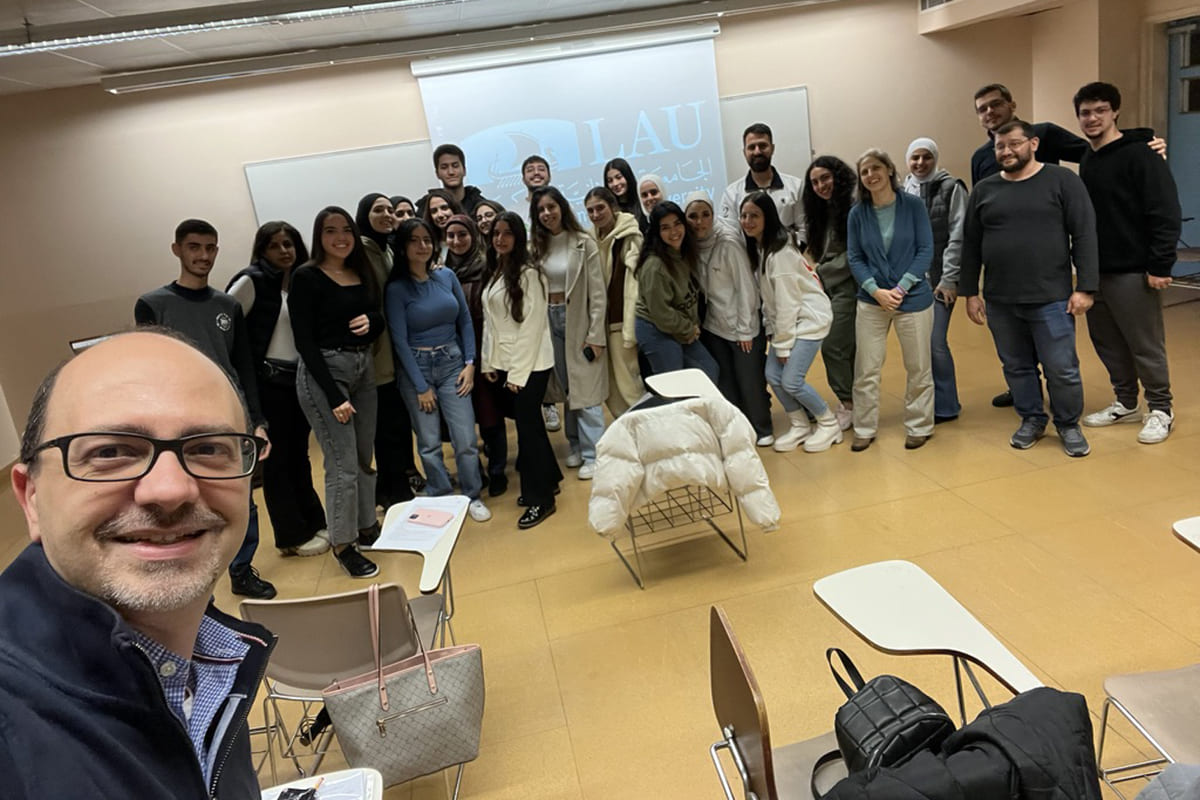A Student-Made Virtual Supermarket Expedites Lessons in Marketing
Dr. Zahy Ramadan takes experiential learning to the next level in graduate and undergraduate courses at the Adnan Kassar School of Business.
For generations of students preparing for emerging careers, learning to navigate and create experiences for the imminent metaverse is a must. Defined in simple terms as a virtual parallel world that can digitally replicate people’s lives, the metaverse is reshaping industries such as education, healthcare, music, gaming and retail.
Offering students a taste of this digital space has been one of the many objectives of the LAU Mixed Reality (XR) Taskforce Committee, a non-exclusionary group of faculty and staff from different schools “who share a passion for marrying cutting-edge technologies with high-quality pedagogical practices,” said Assistant Provost for Educational Resources and Innovation Jordan Srour.
One committee member, Associate Professor of Marketing Zahy Ramadan, identified the need for students to virtually practice planogramming—the placement of products on retail shelves—and pitched the idea to the committee.
“Such an experiential learning experience not only gives students a memorable moment from class, but it also equips them with the hands-on skills they will certainly need in retail, advertising or consulting,” explained Dr. Ramadan. “They form a full understanding of the marketing theory as they execute it in the virtual world and come up with effective solutions for business challenges,” he added.
Because the software for a VR supermarket did not exist, it had to be developed from scratch.
Consequently, over the summer, Lead Library Technologies and Innovation Manager Hani Salem worked closely with a second-year undergraduate computer science student, Ali Abdul Ghaffar, to create a virtual supermarket. The following fall, the app was tested in two of Dr. Ramadan’s courses: The Shopper Marketing graduate course and the Senior Marketing Strategy undergraduate course at the Adnan Kassar School of Business.
“Our VR app allows users to design a planogram, roam the supermarket, visualize shelves, place and remove products on the shelves, as well as grab products and pay for them,” explained Salem, who trained and mentored Abdul Ghaffar at the Electronic Information Classroom in the Riyad Nassar Library.
A 2017 grant from the US Agency for International Development’s American Schools and Hospitals Abroad (USAID/ASHA) had helped LAU acquire virtual reality headsets (Oculus II and HTC Vive Pro) and XR headsets (Microsoft Hololens II).
Additional resources, such as the heavy-duty desktop computer and two LCD screens that were part of this grant, also enabled the two developers to successfully launch the app, which has so far been used by 24 graduate students and 30 undergraduate students.
For Abdul Ghaffar, co-creating this software introduced him to new skill sets, concepts, programming languages and tools. “This is just the beginning,” he said. “I am looking to collaborate with Dr. Ramadan on improving the software and making it fit for use in more courses.” Abdul Ghaffar also plans to present it as a capstone project for his computer science course.
The students who experimented with the virtual supermarket were thrilled to put their theoretical knowledge to the test.
A key advantage for MBA student Nour Balhawan was the ability to analyze how planograms can significantly affect shopper behavior. “This experience was an absolute game-changer, considering the different layouts we could apply, and how it offered a new perspective beyond the traditional classroom,” she said.
“To be able to transform theories into a tangible application is a feat in itself,” added International Business and Marketing undergraduate senior student Omar Wehbe. He was particularly impressed with the short time it took to develop the app, which “has great potential as a teaching tool.”
Ultimately, exposing students to this advanced form of experiential learning aligns with the university’s strategic plan for pedagogical innovation and is central to Dr. Ramadan’s approach to teaching. “Gamifying the course material was not easy at all, but I am confident that students will always remember the experience and will bring it up in a job interview or in the course of their work in the future,” he said.
Offering a university-wide perspective, Dr. Srour noted how XR technology is being implemented at the Alice Ramez Chagoury School of Nursing, the School of Arts and Sciences, the School of Architecture and Design and the School of Engineering.
“XR technology allows our students to experience environments they might not have access to by any other means or that might not be safe for them to access until they have achieved a certain level of training,” said Dr. Srour, giving as an example how nursing students can experience cases or patient outcomes that might be rare to come across in a real-world clinical setting.
Between enabling architecture students to “walk” through the structures they have designed, and engineering majors experiment with hazardous heavy machinery before coming close to it in real life, XR technology is forging infinite paths for the new frontiers of learning at LAU.


